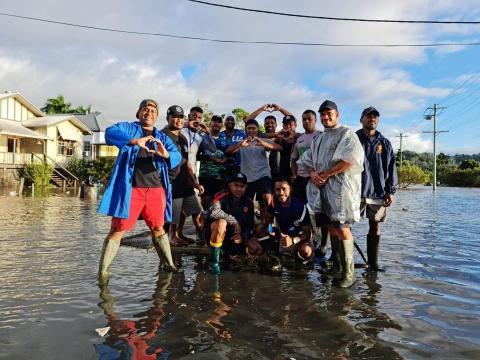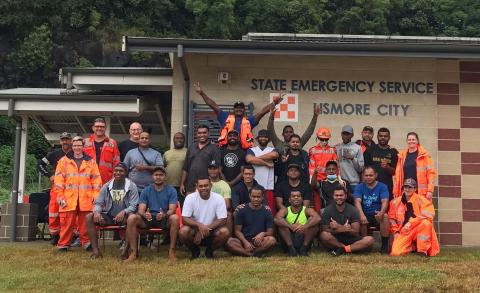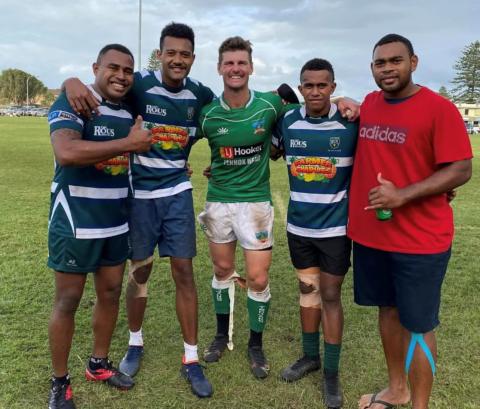One year after the devastating floods in Lismore, the Fijian workers who supported emergency evacuation efforts after just 2 weeks in Australia are still living and working in the community, which they say now feels “like home”.

The Pacific Australia Labour Mobility (PALM) scheme workers arrived in Lismore, New South Wales in March 2022 to work at a local meat processing site.
They had barely settled in when the flood warnings came.
“We received a call from our manager that the road and our work site would be closed,” said team member Sekove.
“We stayed up the whole night and the next morning saw on the news that the people of Lismore needed help. There weren’t enough police, SES or firefighters to help the people that needed to be rescued.”
It was then that the men contacted local emergency services to offer their assistance.
“We put on our work shoes and drove straight there,” Sekove said.
The workers helped carry the elderly, children and animals from rescue boats so they could be taken to evacuation centres.
Some of the workers were then stationed at the centres, where they helped distribute supplies and provide support.
“It was scary but the boys are used to floods from back in Fiji, so they were ready to help out,” Sekove said.
Request to sing Fijian hymn at the Opera House

A few weeks before the first anniversary of the floods, Sekove and his team were approached by the New South Wales Government to be part of a unique event in recognition of their efforts during the floods.
“They asked us to sing at the [Sydney] Opera House for a televised Australia Day event as an acknowledgement of our contribution,” Sekove said.
They agreed, and sang the famous Fijian gospel hymn Eda sa qaqa in front of a crowd of thousands.
A few weeks later, the group received another call – this time from the Australian Government.
They were invited to the ’Recognition of boaties‘ event in Lismore to receive a medal of honour from David Hurley, Governor-General of the Commonwealth of Australia.
During the event, Fijian and Samoan PALM scheme workers in the area were recognised for their efforts during the floods, including the Samoan women who assisted with cleaning and scrubbing homes in the weeks after the initial emergency.
“They told us we would be receiving medals of honour from the Governor-General. It made me so happy to be recognised and given this award,” said Sekove.

’I feel like Lismore is our home’
The town is still recovering from the flooding and although it has caused destruction and loss, it has brought the community together - including the PALM scheme workers.
According to the men, people now stop to acknowledge them in the street, and some have even dropped meals at their house as a way of thanking them.
The workers have been able to settle in and connect with the community in other ways, for example in their workplace, at the local church and by joining rugby teams.
“I feel like Lismore is my home, is our home. We have made friends, and some we call family as well,” Sekove said.

